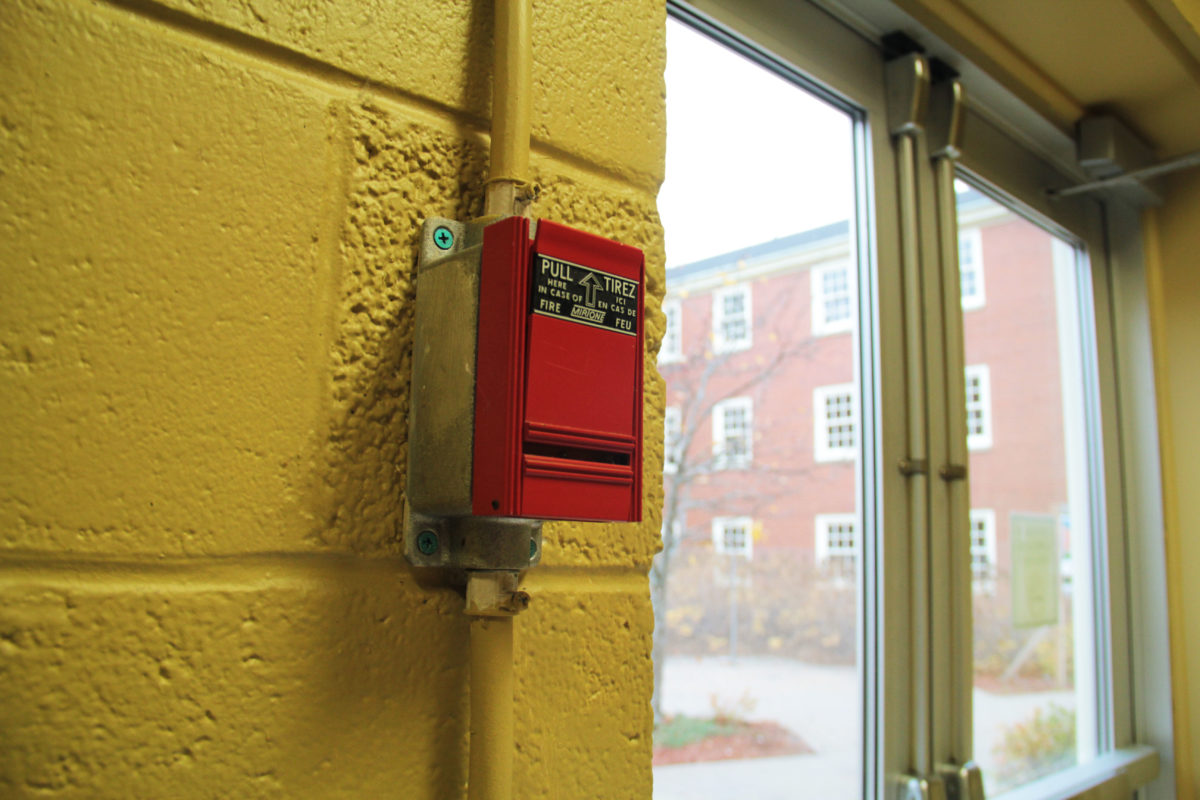When the fire bell tolls, it’s time to evacuate the building. Practicing fire drills is important when it comes to actual emergency situations and failure to evacuate the building comes with consequences for some.
“We have a tendency to do what we practice,” said Desmond Dupuis of campus security. “When it comes to an emergency environment and your adrenaline is pumping, it’s a completely different environment and you do what you know.”
Some students may be heavy sleepers or have difficulty hearing the alarm. Accommodations are made for students who can’t hear the alarm, such as the installment of bright, flashing strobe lights.
Residence advisors and co-ordinators know the residents, said Dupuis, and they make sure the students evacuate the building and work with anyone who has mobility issues.
“We rely on them a great deal,” he said.
However, students who flat out refuse to leave when the alarm shrieks, will be asked to meet with Residence Life and, depending on the circumstances, may receive a fierce reprimand and even a fine from the fire department.
When the high-pitched squealing starts, students must immediately evacuate their rooms and knock on their fellow residents’ doors as they walk towards the nearest exit. Meanwhile, campus security receives an indication on their alarm panel and are phoned by residence advisors. Once the students are gathered in a designated meeting spot, attendance is taken and any missing students who may still be inside are noted and reported to campus security and the fire department.
“Our job is to protect the St. Thomas community and protect the students,” said Dupuis. “We’re there to make sure everyone is safe.”
If a student doesn’t evacuate the building, campus security will write up an occurrence report that identifies the individual and then submit it to the university.
The smoke detectors in residence rooms are checked prior to students arrival, after their checkout and during the summer months. During Welcome Week, students receive information on fire safety and have a drill. Residence Life completes about two fire drills a year.
No one has died or been seriously injured in a fire at St. Thomas. Although, in 2007, there was a total of 226 fire deaths in eight of the 13 provinces or territories.
At St.Thomas, the fire alarms go off about once a week, but they don’t usually cause people to evacuate the building.
“Living in a shared space with a shared kitchen has been known to cause some challenges with our smoke detectors as students practice their cooking skills,” said residence supervisor Alan Irvine.
Fire alarm go off for a variety of reasons, such as burning one’s macaroni or microwave popcorn or illegally studying by candlelight (candles are prohibited in residence). Fires can also spark from over-crowded plugins and left-on space-heaters.

